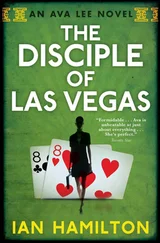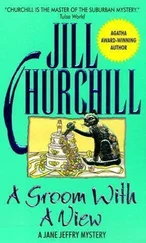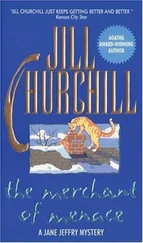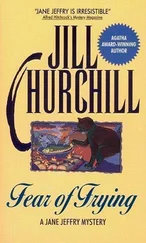Winston Churchill - Ian Hamilton's March
Здесь есть возможность читать онлайн «Winston Churchill - Ian Hamilton's March» весь текст электронной книги совершенно бесплатно (целиком полную версию без сокращений). В некоторых случаях можно слушать аудио, скачать через торрент в формате fb2 и присутствует краткое содержание. Год выпуска: 2018, Издательство: epubBooks Classics, Жанр: История, Прочая документальная литература, на английском языке. Описание произведения, (предисловие) а так же отзывы посетителей доступны на портале библиотеки ЛибКат.
- Название:Ian Hamilton's March
- Автор:
- Издательство:epubBooks Classics
- Жанр:
- Год:2018
- ISBN:нет данных
- Рейтинг книги:4 / 5. Голосов: 1
-
Избранное:Добавить в избранное
- Отзывы:
-
Ваша оценка:
- 80
- 1
- 2
- 3
- 4
- 5
Ian Hamilton's March: краткое содержание, описание и аннотация
Предлагаем к чтению аннотацию, описание, краткое содержание или предисловие (зависит от того, что написал сам автор книги «Ian Hamilton's March»). Если вы не нашли необходимую информацию о книге — напишите в комментариях, мы постараемся отыскать её.
London to Ladysmith
Ian Hamilton's March — читать онлайн бесплатно полную книгу (весь текст) целиком
Ниже представлен текст книги, разбитый по страницам. Система сохранения места последней прочитанной страницы, позволяет с удобством читать онлайн бесплатно книгу «Ian Hamilton's March», без необходимости каждый раз заново искать на чём Вы остановились. Поставьте закладку, и сможете в любой момент перейти на страницу, на которой закончили чтение.
Интервал:
Закладка:
After twenty–four hours of breeze and tossing the good ship found herself in the roads at East London, and having by this time had quite enough of the sea I resolved to disembark forthwith.
Chapter II
Exit General Gatacre
Bethany: April 13.
If you go to sleep when the train leaves East London, you should wake, all being well, to find yourself at Queenstown.
Queenstown lies just beyond the high water–mark of war. The tide had flowed strong after Stormburg, and it looked as if Queenstown would be engulfed, at any rate for a time. But Fortune and General Gatacre protected it. Sterkstroom entrenched itself, and prepared for daily attacks. Molteno was actually shelled. Queenstown suffered none of the horrors of war except martial law, which it bore patiently rather than cheerfully.
Nothing in the town impresses the traveller, but at the dining–room of the railway station there is a very little boy, about twelve years old, who, unaided, manages to serve, with extraordinary dispatch and a grand air, a whole score of passengers during the brief interval allowed for refreshments.
Five months earlier I had passed along this line, hoping to get into Ladysmith before the door was shut, and had been struck by this busy child, who seemed a product of America rather than of Africa. Much had happened in the meantime, not so far from where he lived. But here he was still—the war had not interfered with him, Queenstown was beyond the limit.
At Sterkstroom a line of empty trenches, the Red Cross flag over a hospital, and an extension to the cemetery enclosure filled with brown mounds which the grass had not yet had time to cover, showed that we had crossed the line between peace and war. Passing through Molteno, the last resting–place of the heroic de Montmorency, the train reached Stormburg. Scarcely any traces of the Boer occupation were to be seen; the marks of their encampments behind the ridge where they had laagered—a litter of meat tins, straw, paper, and the like, the grave of Commandant Swanepoole and several nameless heaps, a large stone (in the station–master's possession) with the words engraved on it: 'In memory of the Transvaal commando, Stormburg, December 1899,' and that was all. The floods had abated and receded. This was the only jetsam that remained.
At Stormburg I changed my mind, or, rather—for it comes to the same thing and sounds better—I made it up.
I heard that no immediate advance from Bloemfontein was likely or even possible for a fortnight. Therefore, I said, I will go to Capetown, and shelter for a week at 'The Helot's Rest.' After all, what is the use of a roving commission if one cannot rove at random or caprice?
So to Capetown I went accordingly—seven hundred miles in forty–eight hours of bad trains over sections of the line only newly reopened. But to Capetown I will not take the reader. Indeed, I strongly recommend him to stick to the war and keep his attention at the front, for Capetown at this present time is not an edifying place. Yet, since he may be curious to know some reason for such advice, let me explain.
Capetown, which stands, as some writers have observed, beneath the shadow of Table Mountain, has been—and may be again in times of peace—a pleasant place in which to pursue business or health; but now it is simply a centre of intrigue, scandal, falsehood, and rumour.
The visitor stays at the Mount Nelson Hotel, if he can be so fortunate as to secure a room. At this establishment he finds all the luxuries of a first–class European hotel without the resulting comfort. There is a good dinner, but it is cold before it reaches him; there is a spacious dining–room, but it is overcrowded; there are clean European waiters, but they are few and far between.
At the hotel, in its garden, or elsewhere in the town, all the world and his wife are residing—particularly the wife.
We used to think, in the Army of Natal, that Lord Roberts's operations in the Free State had been a model of military skill and knowledge, and, in a simple way, we regarded French as one of the first cavalry soldiers of the age.
All this was corrected at Capetown, and I learned with painful disenchantment that 'it' (the said operations) had all been a shameful muddle from beginning to end; that the field–marshal had done this and that and the other 'which no man in his senses,' etc., that French was utterly … and as for Lord Kitchener, Capetown—let us be just, imported social Capetown—was particularly severe on Lord Kitchener.
It was very perplexing; and besides it seemed that these people ought to know, for they succeeded in making more news in the twenty–four hours than all the correspondents at the front put together. The whole town was overrun with amateur strategists and gossiping women. There were more colonels to the acre than in any place outside the United States, and if the social aspect was unattractive, the political was scarcely more pleasing.
Party feeling ran high. Some of the British section, those tremendous patriots who demonstrate but do not fight—not to be on any account compared with the noble fellows who fill the Volunteer corps—pot–house heroes, and others of that kidney, had just distinguished themselves by mobbing Mr. Schreiner in the streets.
The Dutch section, some of them the men who, risking nothing themselves, had urged the Republics to their ruin, all of whom had smiled and rubbed their hands at the British reverses, sat silent in public, but kept a strict watch on incoming steamers for members of Parliament and others of more influence and guile, and whispered honeyed assurances of their devotion to the Empire, coupled with all sorts of suggestions about the settlement—on the broad general principle of 'Heads I win, tails you lose.'
British newspapers advocated short shrift to rebels—'Hit 'em hard now they're down'; 'Give them a lesson this time, the dirty Dutchmen!' Dutch papers recorded the events of the war in the tone, 'At the end of the battle the British, as usual, fled precipitately, leaving 2,000 killed, our loss'—no, not quite that, but very nearly; everything, in fact, but the word 'our'—'one killed, two slightly wounded.'
Let no one stay long in Capetown now who would carry away a true impression of the South Africans. There is too much shoddy worn there at present.
Only at Government House did I find the Man of No Illusions, the anxious but unwearied Proconsul, understanding the faults and the virtues of both sides, measuring the balance of rights and wrongs, and determined—more determined than ever; for is it not the only hope for the future of South Africa?—to use his knowledge and his power to strengthen the Imperial ties.
All this time the reader has been left on a siding at Naauwpoort; but does he complain of not being taken to Capetown? We will hasten back together to the healthier atmosphere of war.
Indeed, the spell of the great movements impending in the Free State began to catch hold of me before I had travelled far on the line towards Bloemfontein. Train loads of troops filled every station or siding. A ceaseless stream of men, horses, and guns had been passing northwards for a fortnight, and on the very day that I made the journey Lord Kitchener had ordered that in future all troops must march beyond Springfontein, because the line must be cleared for the passage of supplies, so that, besides the trains in the sidings, there were columns by the side of the railway steadily making their way to the front.
The one passenger train in the day stopped at Bethany. I got out. To go on was to reach Bloemfontein at midnight. Better, then, to sleep here and proceed at dawn.
'Are there many troops here?' I asked. They replied 'The whole of the Third Division.' 'Who commands?' 'Gatacre.' That decided me.
Читать дальшеИнтервал:
Закладка:
Похожие книги на «Ian Hamilton's March»
Представляем Вашему вниманию похожие книги на «Ian Hamilton's March» списком для выбора. Мы отобрали схожую по названию и смыслу литературу в надежде предоставить читателям больше вариантов отыскать новые, интересные, ещё непрочитанные произведения.
Обсуждение, отзывы о книге «Ian Hamilton's March» и просто собственные мнения читателей. Оставьте ваши комментарии, напишите, что Вы думаете о произведении, его смысле или главных героях. Укажите что конкретно понравилось, а что нет, и почему Вы так считаете.











